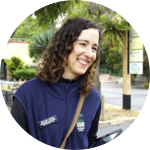About This Project
Zika virus (ZIKV) is usually transmitted by Aedes mosquitoes. In different geographic locations they vary in their ability to transmit the virus between people. We will investigate how well Aedes from the New Orleans area can transmit ZIKV, and will evaluate another common species, Culex quinquefasciatus, as a potential vector. Our research will provide data useful for mathematical modeling, identification of high-risk areas, and enhancing control and education programs for ZIKV in the U.S.
Ask the Scientists
Join The DiscussionWhat is the context of this research?
Zika fever is an emerging mosquito-borne disease resulting from infection with Zika virus (ZIKV). Symptoms tend to be mild but recent evidence suggests the virus capable of attacking nerve cells and causing microcephaly in newborns, and neurological problems in adults. Aedes (Ae.) aegypti and Ae. albopictus, the mosquitoes most able to transmit ZIKV, occur throughout the Southeastern (SE) United States. Interestingly, variability in transmission ability between mosquito populations from different locations has been shown to exist for other mosquito-borne viruses, such as West Nile virus and dengue virus. Populations with lower ability may be less able to cause an outbreak. In this study, we will assess the ability of both Aedes and Culex (Cx.) mosquitoes from SE Louisiana to transmit ZIKV.
What is the significance of this project?
The most effective way to combat most mosquito-borne diseases is through mosquito control. Identification of mosquito populations that efficiently spread the virus in advance of disease outbreaks enables mosquito control and public health operations to better target their activities. Consequently, determining if the mosquitoes of Southeastern states such as Louisiana are capable of transmitting ZIKV is imperative. Results from this study will be used in mathematical models to predict where and when transmission might occur, and will launch further investigations into understanding the variation in transmission ability observed within mosquito species. This study is an effort to understand the role of Aedes and Culex mosquitoes in potentially driving ZIKV transmission in the United States.
What are the goals of the project?
Our main goal is to advise vector control and public health officials on the potential for ZIKV transmission by local mosquitoes, allowing them to focus their prevention efforts to best utilize limited resources. We plan to test Ae. aegypti, Ae. albopictus, and Cx. quinquefasciatus mosquitoes from at least 3 urban locations in SE Louisiana. We will collect mosquito eggs or larvae, rear them out in the laboratory to establish distinct colonies. Using virus grown in cell culture, we will experimentally infect groups of these mosquitoes. After allowing incubation in the mosquito, we will measure the infection rate (percentage of mosquitoes with infected bodies), the disseminated infection rate (percentage of mosquitoes with infected heads), and the transmission rate (amount of virus in mosquito saliva).
Budget
Donated funds will be used to purchase laboratory consumables for virus propagation in cell culture and for Immunofluorescence assays that will detect the virus in mosquito tissues.
Other funding will provide support for field collections and for maintaining mosquitoes in the laboratory.
The extra $2,000 will be used to buy more reagents and materials so we can increase the sample size. This is important because a bigger sample size reflects the population better. Therefore, our conclusion will be more reliable.
Endorsed by
Meet the Team
Affiliates
Affiliates
Affiliates
Affiliates
Panpim Thongsripong
While growing up in rural Thailand, I became especially aware of how the tiniest creatures such as mosquitoes could create big problems in public health. I became interested and started doing research in mosquito-borne diseases during my undergraduate training in Thailand; raising mosquitoes in an insectary, collecting mosquitoes from field sites, and learning advanced techniques in laboratory molecular biology. Since then, I have been fortunate to receive graduate training from many inspiring scientists in the Department of Tropical Medicine at the University of Hawai'i and the Department of Microbiology at the California Academy of Science in San Francisco. I worked in multidisciplinary teams with scientists in numerous fields to more completely understand and address mosquito-borne diseases such as Dengue fever. Through these interactions, I developed research skills in ecology, entomology, virology, and bioinformatics. My work on multidisciplinary teams taught me that effective infectious disease control programs demand understanding of not only molecular biology and immunology, but also the ecology of pathogens and hosts.
Currently, I am pursuing a PhD at Tulane University School of Public Health and Tropical Medicine in the wonderful city of New Orleans. My research combines interdisciplinary approaches from ecology, medical entomology, and virology to better understand the risks of mosquito-borne disease transmission in the Southern United States.
Matthew J. Ward
Matthew earned his Bachelor of Arts in Biology and Studio Art from Pitzer College in 2011 with an emphasis on chameleon behavior and physiology. In 2015, Matt completed a Master of Science in Public Health from the Tulane University School of Public Health and Tropical Medicine following 27-months of service as a Master’s International Peace Corps Health Volunteer in Ghana. While in the Peace Corps, Matt completed his Master thesis on the accuracy and applicability of malaria RDTs in rural Ghana. As part of Dr. Dawn Wesson’s laboratory, Matt is currently working on his Ph.D. in Tulane’s Department of Tropical Medicine where his interests lie in mosquito vector competence, ecology, and control.
Sarah R. Michaels
I am fascinated by the impact of environmental changes and vector-borne diseases. As an undergraduate at the University of Rochester, I first studied entomology at the University of Adelaide in Australia, as part of earning a B.A. in Environmental Studies. I then moved to New Orleans and completed a MSPH in Parasitology from Tulane University, School of Public Health & Tropical Medicine and later began pursuing a PhD. I have also worked as an infectious disease epidemiologist at the Louisiana Office of Public Health, Laboratory Coordinator for Dr. Dawn Wesson and Mosquito Control Supervisor at the New Orleans Mosquito & Termite Control Board. These positions have allowed me to work in the field, lab and office and see the impact of arboviruses from the environmental, vector and human perspective. I would like to continue to better understand the impact of these diseases in the Southeastern United States.
Dawn Wesson
I earned my BA in Biology and Spanish from North Central College, my MS in Ecology from the University of Illinois at Chicago, and my PhD in Medical Entomology from the University of Notre Dame. I spent 3 years as a postdoctoral researcher at the Malaria Branch of the Centers for Disease Control and Prevention, before accepting a tenure track position in the Department of Tropical Medicine at Tulane University. Since 1993 I have studied the ecology of vector-borne viruses (such as West Nile virus, dengue virus and Zika virus) and of Chagas disease. During that time I have been funded both as PI and co-investigator by NIH, CDC, and the Bill and Melinda Gates Foundation.
During the final years of my PhD research I was part of a team that discovered a novel mosquito-borne virus being transmitted by a (then) newly introduced mosquito species, Aedes albopictus. That work was published in Science in 1990, and became the basis for my lifelong interest in novel interactions between viruses and the mosquitoes that transmit them. Since then, we have published on dengue vector competence in Aedes aegypti mosquitoes from Colombia, and yellow fever vector competence in two species of African mosquitoes.
With established colonies of the vector mosquitoes, and all of the necessary expertise and equipment in place for safe virus propagation, mosquito handling and infection, and assessment, my laboratory group is perfectly poised to make major contributions to understanding the risk for transmission posed by the mosquitoes most likely to transmit Zika virus in the United States.
Lab Notes
Nothing posted yet.
Project Backers
- 85Backers
- 115%Funded
- $5,872Total Donations
- $69.08Average Donation








